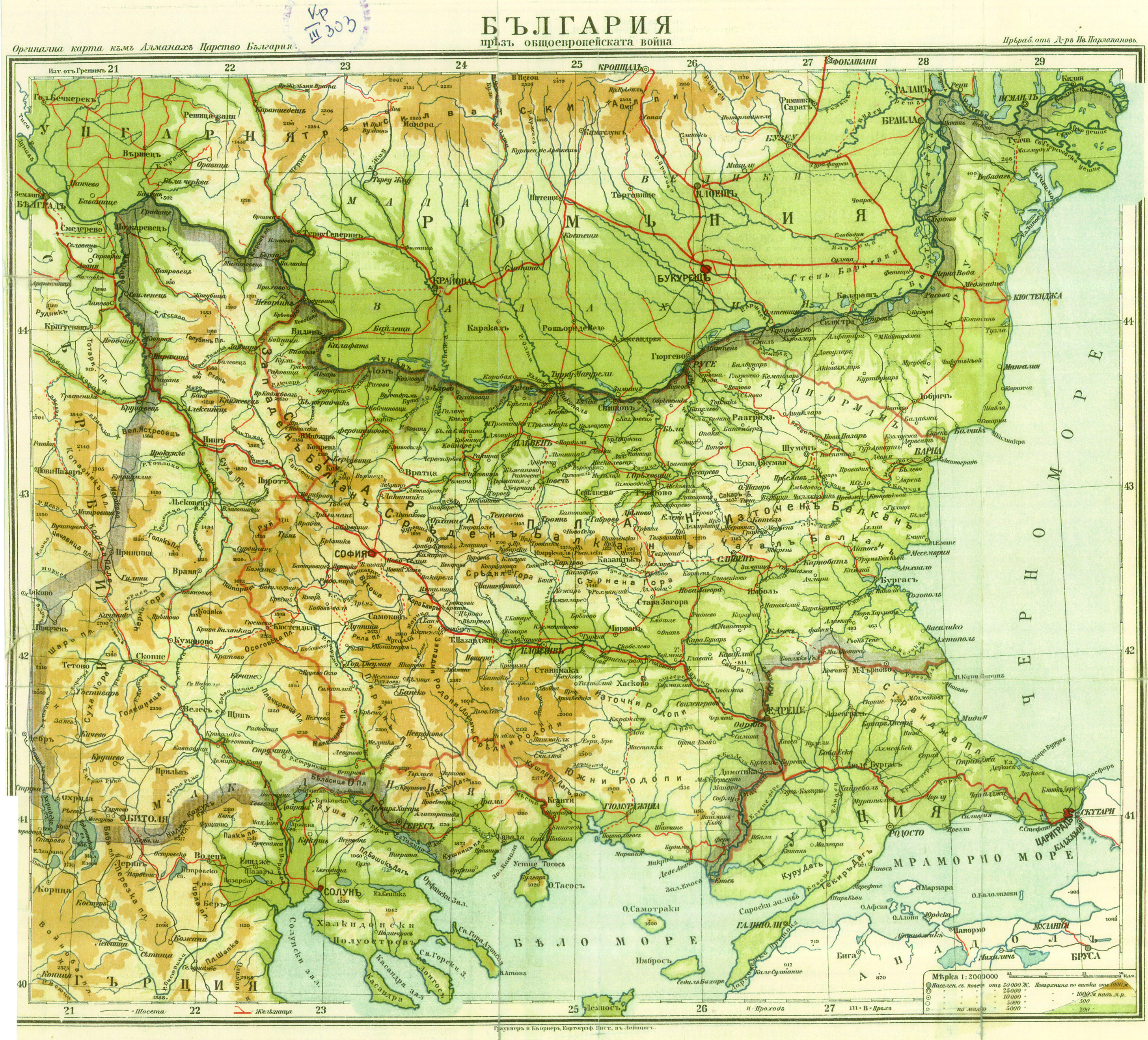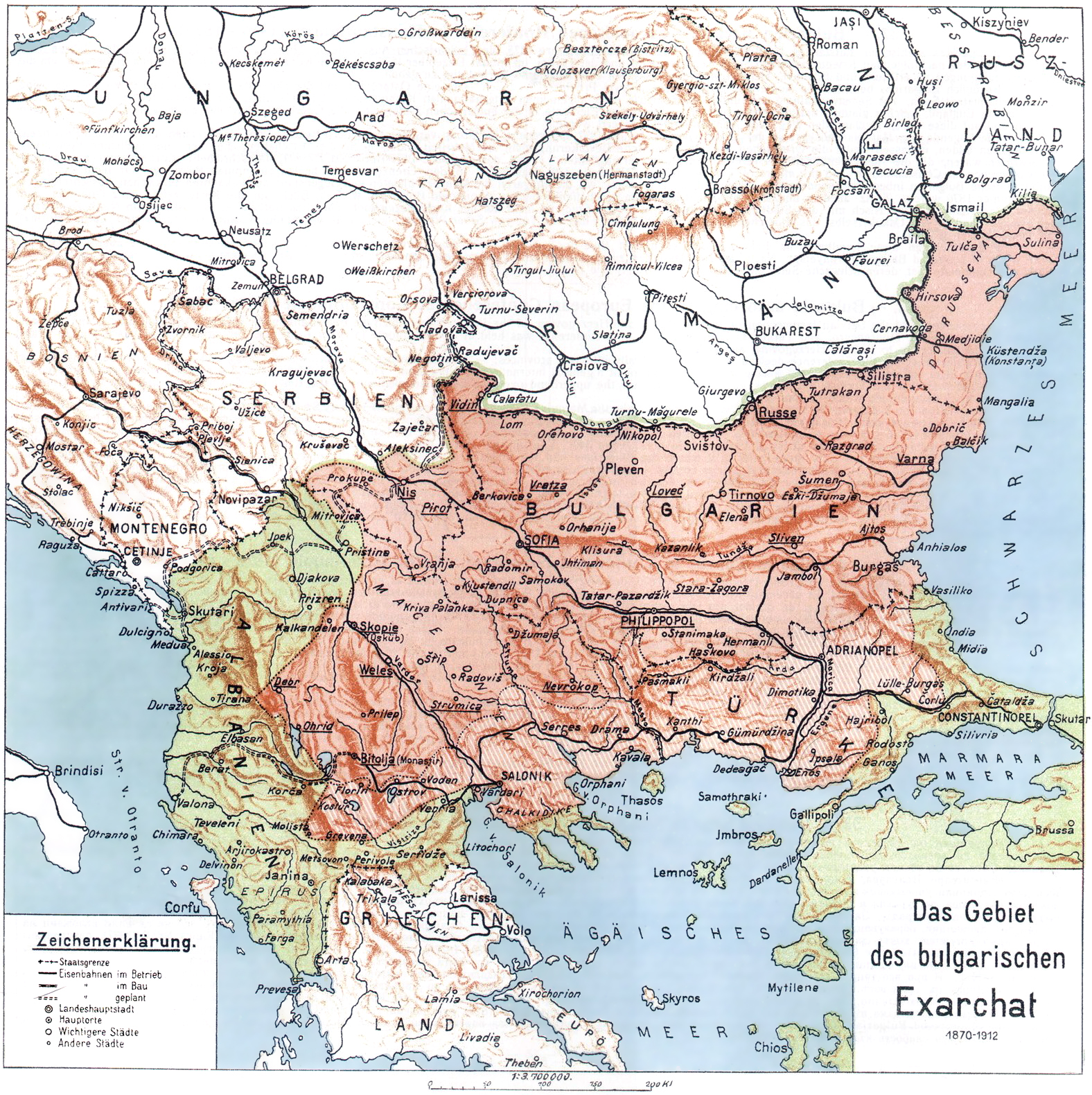|
Belomorie
Belomorie ( bg, Беломорие, meaning Aegean Sea coastal lands), is the Bulgarian name for roughly the area of today's Greek province of Eastern Macedonia and Thrace, including the eastern part of Central Macedonia. The name comes from the South Slavic designation of the Aegean Sea, which is translated as the ''White Sea'', in contrast to the Black Sea. The area was fully under Bulgarian control during the First Balkan War, as well as during the First World War and partially in between. It was ruled as a province by Bulgaria with that name during the Axis occupation of Greece in World War II World War II or the Second World War, often abbreviated as WWII or WW2, was a world war that lasted from 1939 to 1945. It involved the vast majority of the world's countries—including all of the great powers—forming two opposin .... References {{reflist Bulgarian occupation of Greece during World War II Bulgarian nationalism Bulgaria in World War II History of ... [...More Info...] [...Related Items...] OR: [Wikipedia] [Google] [Baidu] |
Eastern Macedonia And Thrace
Eastern Macedonia and Thrace ( el, Ανατολική Μακεδονία και Θράκη, translit=Anatolikí Makedonía ke Thráki, ) is one of the thirteen administrative regions of Greece. It consists of the northeastern parts of the country, comprising the eastern part of the region of Macedonia along with the region of Western Thrace, and the islands of Thasos and Samothrace. Administration Administrative history The region of Eastern Macedonia and Thrace was established in the 1987 administrative reform as the Eastern Macedonia and Thrace Region ( el, Περιφέρεια Ανατολικής Μακεδονίας και Θράκης, translit=Periféria Anatolikís Makedhonías ke Thrákis. With the 2010 Kallikratis plan, its powers and authority were redefined and extended, with the preexisting region in many respects inheriting status and weight of the five now abolished prefectures, Drama, Evros, Kavala, Rhodope and Xanthi. In this special case, the region of Eas ... [...More Info...] [...Related Items...] OR: [Wikipedia] [Google] [Baidu] |
Serres (regional Unit)
Serres ( el, Περιφερειακή ενότητα Σερρών) is one of the regional units of Greece, in the geographic region of Macedonia. It is part of the Region of Central Macedonia. Its capital is the city of Serres. The total population reaches just over 175,000. Geography The mountains are Orvelos to the north, Menoikio to the east, Pangaio to the southeast, Kerdylio to the southwest, Vertiskos to the west, parts of Krousi to the west and portions of the Kerkini lies to the northwest. The regional unit borders on Thessaloniki to the southwest, Kilkis to the west, North Macedonia with the Novo Selo Municipality to the northwest, the Blagoevgrad Province of Bulgaria to the north, Drama to the northeast and Kavala to the east. The Strymonian Gulf lies to the south along with the Strymonas delta. Lake Kerkini was a lake located in the southern portion which is now drained. 41% of the regional unit are arable and most of the lands are near the Strymonas river which f ... [...More Info...] [...Related Items...] OR: [Wikipedia] [Google] [Baidu] |
Aegean Sea
The Aegean Sea ; tr, Ege Denizi (Greek language, Greek: Αιγαίο Πέλαγος: "Egéo Pélagos", Turkish language, Turkish: "Ege Denizi" or "Adalar Denizi") is an elongated embayment of the Mediterranean Sea between Europe and Asia. It is located between the Balkans and Anatolia, and covers an area of some 215,000 square kilometres. In the north, the Aegean is connected to the Marmara Sea and the Black Sea by the straits of the Dardanelles and the Bosphorus. The Aegean Islands are located within the sea and some bound it on its southern periphery, including Crete and Rhodes. The sea reaches a maximum depth of 2,639m to the west of Karpathos. The Thracian Sea and the Sea of Crete are main subdivisions of the Aegean Sea. The Aegean Islands can be divided into several island groups, including the Dodecanese, the Cyclades, the Sporades, the Saronic Islands, Saronic islands and the North Aegean islands, North Aegean Islands, as well as Crete and its surrounding islands. The ... [...More Info...] [...Related Items...] OR: [Wikipedia] [Google] [Baidu] |
Black Sea
The Black Sea is a marginal mediterranean sea of the Atlantic Ocean lying between Europe and Asia, east of the Balkans, south of the East European Plain, west of the Caucasus, and north of Anatolia. It is bounded by Bulgaria, Georgia, Romania, Russia, Turkey, and Ukraine. The Black Sea is supplied by major rivers, principally the Danube, Dnieper, and Don. Consequently, while six countries have a coastline on the sea, its drainage basin includes parts of 24 countries in Europe. The Black Sea covers (not including the Sea of Azov), has a maximum depth of , and a volume of . Most of its coasts ascend rapidly. These rises are the Pontic Mountains to the south, bar the southwest-facing peninsulas, the Caucasus Mountains to the east, and the Crimean Mountains to the mid-north. In the west, the coast is generally small floodplains below foothills such as the Strandzha; Cape Emine, a dwindling of the east end of the Balkan Mountains; and the Dobruja Plateau considerably farth ... [...More Info...] [...Related Items...] OR: [Wikipedia] [Google] [Baidu] |
First Balkan War
The First Balkan War ( sr, Први балкански рат, ''Prvi balkanski rat''; bg, Балканска война; el, Αʹ Βαλκανικός πόλεμος; tr, Birinci Balkan Savaşı) lasted from October 1912 to May 1913 and involved actions of the Balkan League (the Kingdoms of Kingdom of Bulgaria, Bulgaria, Kingdom of Serbia, Serbia, Kingdom of Greece, Greece and Kingdom of Montenegro, Montenegro) against the Ottoman Empire. The Balkan states' combined armies overcame the initially numerically inferior (significantly superior by the end of the conflict) and strategically disadvantaged Ottoman armies, achieving rapid success. The war was a comprehensive and unmitigated disaster for the Ottomans, who lost 83% of their European territories and 69% of their European population. [...More Info...] [...Related Items...] OR: [Wikipedia] [Google] [Baidu] |
Bulgaria During World War I
The Kingdom of Bulgaria participated in World War I on the side of the Central Powers from 14 October 1915, when the country declared war on Kingdom of Serbia, Serbia, until 30 September 1918, when the Armistice of Salonica came into effect. After the Balkan wars of 1912 and 1913, Bulgaria was diplomatically isolated, surrounded by hostile neighbors and deprived of Great Power support. Negative sentiment grew particularly in Third French Republic, France and Russian Empire, Russia, whose officials blamed Bulgaria for the dissolution of the Balkan League, an alliance of Balkan states directed against the Ottoman Empire. Bulgarian defeat in the Second Balkan War in 1913 turned revanchism into a foreign policy focus. When the First World War started in July 1914, Bulgaria, still recovering from the economic and demographic damage of the Balkan Wars, declared neutrality. Strategic location and a strong military establishment made the country a desired ally for both warring coalitio ... [...More Info...] [...Related Items...] OR: [Wikipedia] [Google] [Baidu] |
World War II
World War II or the Second World War, often abbreviated as WWII or WW2, was a world war that lasted from 1939 to 1945. It involved the vast majority of the world's countries—including all of the great powers—forming two opposing military alliances: the Allies and the Axis powers. World War II was a total war that directly involved more than 100 million personnel from more than 30 countries. The major participants in the war threw their entire economic, industrial, and scientific capabilities behind the war effort, blurring the distinction between civilian and military resources. Aircraft played a major role in the conflict, enabling the strategic bombing of population centres and deploying the only two nuclear weapons ever used in war. World War II was by far the deadliest conflict in human history; it resulted in 70 to 85 million fatalities, mostly among civilians. Tens of millions died due to genocides (including the Holocaust), starvation, ma ... [...More Info...] [...Related Items...] OR: [Wikipedia] [Google] [Baidu] |
Bulgarian Occupation Of Greece During World War II
Bulgarian may refer to: * Something of, from, or related to the country of Bulgaria * Bulgarians, a South Slavic ethnic group * Bulgarian language, a Slavic language * Bulgarian alphabet * A citizen of Bulgaria, see Demographics of Bulgaria * Bulgarian culture * Bulgarian cuisine, a representative of the cuisine of Southeastern Europe See also * * List of Bulgarians, include * Bulgarian name, names of Bulgarians * Bulgarian umbrella, an umbrella with a hidden pneumatic mechanism * Bulgar (other) * Bulgarian-Serbian War (other) The term Bulgarian-Serbian War or Serbian-Bulgarian War may refer to: * Bulgarian-Serbian War (839-842) * Bulgarian-Serbian War (853) * Bulgarian-Serbian wars (917-924) * Bulgarian-Serbian War (1330) * Bulgarian-Serbian War (1885) * Bulgarian-Serbi ... {{disambiguation Language and nationality disambiguation pages ... [...More Info...] [...Related Items...] OR: [Wikipedia] [Google] [Baidu] |
Bulgarian Nationalism
Bulgarian irredentism is a term to identify the territory associated with a historical national state and a modern Bulgarian irredentist nationalist movement in the 19th and 20th centuries, which would include most of Macedonia, Thrace and Moesia. History The larger proposed Bulgarian state was suggested under the Treaty of San Stefano in 1878. The issue of irredentism and nationalism gained greater prominence after the Treaty of San Stefano. It established a Principality of Bulgaria, with territory including most of Moesia - the plain between the Danube and the Balkan mountains range (Stara Planina), the regions of Sofia, Pirot, and Vranje in the Morava Valley, Thrace - Northern Thrace, parts of Eastern Thrace, and nearly all of Macedonia. This treaty laid grounds for much of the later claims for a Greater Bulgaria. However, the Treaty of San Stefano was a preliminary one, and the borders of the newly created Bulgaria were established in the Treaty of Berlin. It saw t ... [...More Info...] [...Related Items...] OR: [Wikipedia] [Google] [Baidu] |
Bulgaria In World War II
The history of Bulgaria during World War II encompasses an initial period of neutrality until 1 March 1941, a period of alliance with the Axis Powers until 8 September 1944, and a period of alignment with the Allies in the final year of the war. Bulgarian military forces occupied with German consent parts of the kingdoms of Greece and Yugoslavia which Bulgarian irredentism claimed on the basis of the 1878 Treaty of San Stefano. Bulgaria resisted Axis pressure to join the war against the Soviet Union, which began on 22 June 1941, but did declare war on Britain and the United States on 13 December 1941. The Red Army entered Bulgaria on 8 September 1944; Bulgaria declared war on Germany the next day. As an ally of Nazi Germany, Bulgaria participated in the Holocaust, contributing to the deaths of 11,343 Jews, and though 48,000 Jews survived the war, they were subjected to forcible internal deportation, dispossession, and discrimination. However, during the war, German-allied Bu ... [...More Info...] [...Related Items...] OR: [Wikipedia] [Google] [Baidu] |







